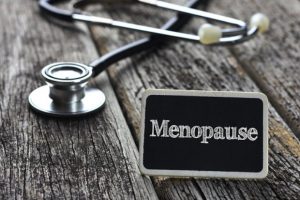
For a very long time, menopause has been associated with a certain stigma. That’s how we as a society approach this transition. We are unwilling to talk about it in our younger years, dreading its approach as the years go by and suffering in silence once it strikes. Whether it be the uncomfortable symptoms that were too awkward to discuss or the perception of a loss of attractiveness, even to this day, many women are reluctant to talk about their menopausal experiences.
But just like every cloud has a silver lining, there’s a flip side to menopause. A positive flip side. And the sooner you’re able to see this silver lining, the better you’re going to feel about menopause and the more equipped you’re going to be to handle the associated ordeals.
Menopause is the perfect time to get in shape
This may sound a bit contradictory, as one of the unpleasant changes that menopause brings about is weight gain and fat accumulation around the waist. Besides, the classical symptoms of menopause—mood swings, hot flashes, disturbed sleep—can leave you drained, frustrated, and working out will be the last thing on your mind.
Yet, recent research from Denmark that was published in the Journal of Physiology states that the menopausal period is the perfect time to get fit through physical activity, even for women who have never exercised. The scientists speculate that this may be due to the fact that less estrogen available in a menopausal woman’s body could actually promote oxygen uptake in the muscles.
The benefit of taking your workouts seriously in menopause is twofold. On one hand, you can effectively prevent the forthcoming weight gain and maybe even achieve your earlier weight loss goals. On the other hand, being in a good physical and mental state (something that regular physical activity does to you) helps you transition through menopause more smoothly.
Gentle workouts help improve your hot flashes, sleeping problems, anxiety, and fatigue. Weight-bearing exercises help prevent bone loss, the bane of menopause and aging. The uplifted spirit and sense of well-being that you get from taking care of your body help you accept the inevitable changes and remain positive about them. As you know, in many cases, it’s a matter of perception.
Lifestyle changes for healthy menopause
Of course, exercise for improving menopause symptoms is not a short-term therapy but a long-term lifestyle change. Once you undertake a fitness regimen, you should stick to it to enjoy the results. Otherwise, the benefits attained may be lost.
As a rule, try getting in about 30 minutes of physical activity every day for at least five days in a week. If you can’t work out for half an hour straight, break it down into three 10-minute sessions. Aerobic exercise like running and swimming is great for overall health and helps ward off cardiovascular problems.
Weight-bearing routines make your bones stronger. Keep in mind that irregular high-impact exercise can make things worse.
Sometimes, you may find that active lifestyle in combination with natural supplements or hormone therapy prescribed by your doctor works best.
For optimal results, quit smoking, limit your alcohol and coffee drinking, and follow a strict sleep schedule. Take time to accommodate your symptoms. Wear lighter clothes and keep cool temperatures at home to alleviate your hot flashes.